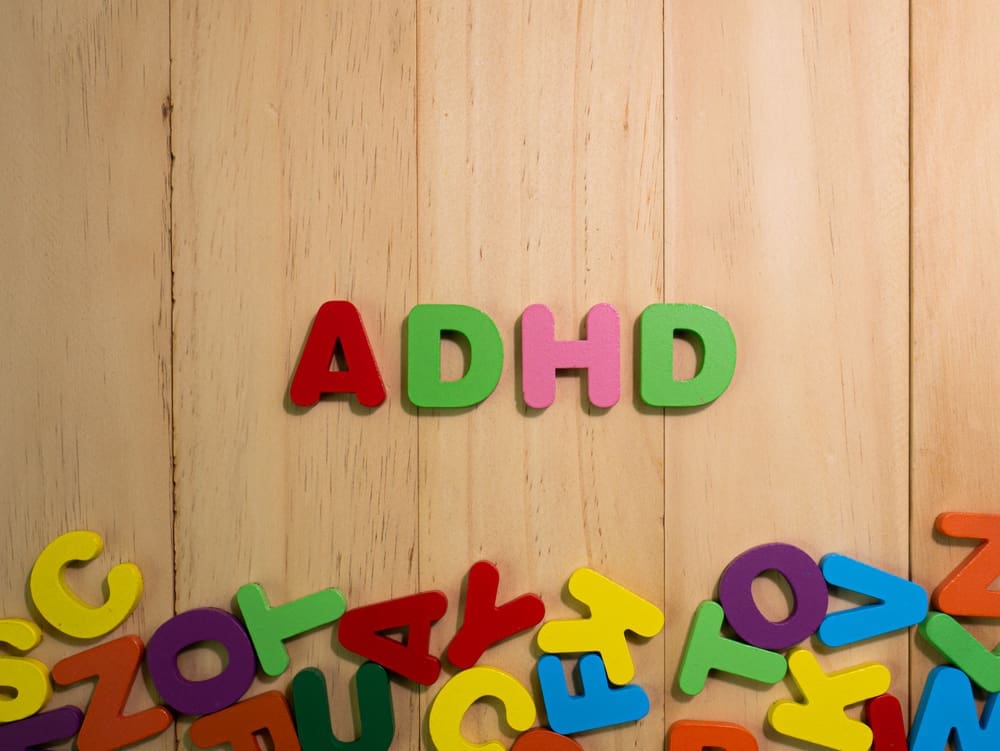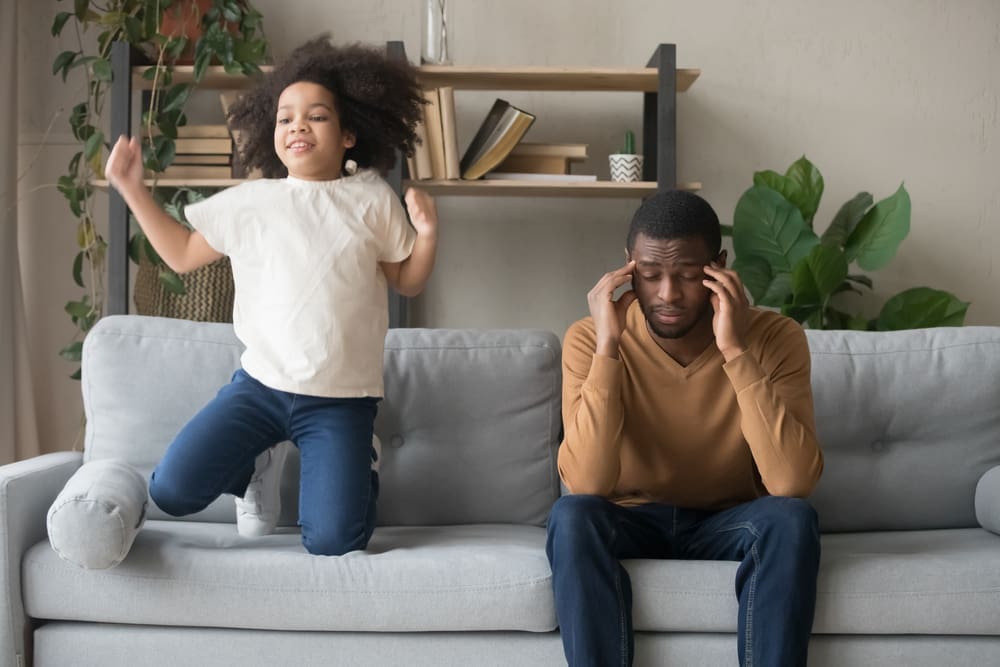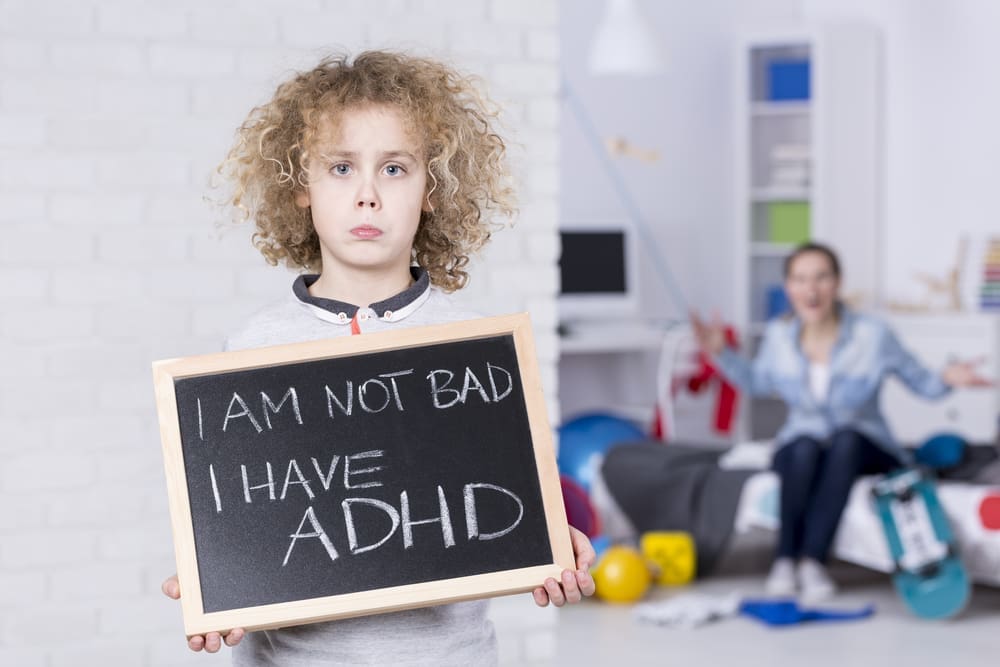How To Positively Parent Your ADHD Child

If you are living with a child who has been diagnosed with ADHD or ADD, you have likely been on an emotional rollercoaster. You will also know by now that traditional child-rearing techniques don’t always work as well. Having an ADHD child doesn’t mean that he or she is abnormal. Neither is your child deliberately stubborn, disobedient, scattered, demanding, obnoxious, aggressive, or lazy. Despite what others’ may say, ADHD is not a ‘behavior problem,’ nor is it a ‘discipline problem.’. ADHD is a neurological, genetic, nutritional, and environmental medical disorder problem that imbalances the brain.
What does that mean? Your child is not a bad child. You are not a bad parent. Nobody is to blame for ADHD. So focusing on blame and shame for your child’s bad behavior, and trying to correct it with criticism is a disappointingly hurtful waste of time.
Given the right support and help, children with ADHD can grow up to be successful adults with thriving, fulfilling lives. But first, you need to give them what they need as children.
Daily Life
Depending on the severity of your child’s symptoms, normal rule-making and household routines can become very difficult. The way you approach your child and choose to handle daily life can have a big impact. Use this basic Positive Discipline framework to help you get a handle on key areas of your child’s daily life:
Setting Rules – Keep rules simple and clear and be consistent, rewarding your child with positive encouragement.
Be flexible – Being too strict with an ADHD child can have drawbacks. They may not adapt to change as well as others. Allow them to make mistakes and learn natural consequences in a safe way.
Manage aggression – Implement cool-off periods to calm both you and your child. If you are able to stay calm, it becomes easier to ignore mildly disruptive behaviors and focus on addressing behaviors that are destructive, abusive, or intentionally disruptive.
Create structure – Set up a routine and stick to it as much as you can for bedtime, meals, homework, etc.
Prevent overwhelm – Break tasks into smaller, more manageable pieces so it’s easier to accomplish goals, rather than see tasks as insurmountable.
Organize – Simplify and organize your child’s life in terms of keeping things in their place to limit distractions and create order and chaos.
Limit gadget use – ADHD kids can hyperfocus on their favorite TV shows, movies and video games, but that doesn’t mean you should encourage it. In fact, they may encourage more impulsive behavior and find it difficult to tear themselves away back into the real world. Limit TV, computer, and video game use, and find more crafty, hands-on, our outdoor pursuits instead.
Encourage physical activity – Exercise has been proven to help children focus their attention on specific movements which may decrease impulsivity. It can also help aid concentration, lower the risk for depression and anxiety and positively stimulate the brain.
Qur’an class – Every child’s abilities vary, and learning to recite the Qur’an and memorizing can be extra challenging for ADHD children, and you may notice it more if your child is taking online classes. You may need to do more hand-holding, be encouraging, and above all, be more patient. The key is to find a teacher with compassion, understanding, and an abundance of patience. Don’t be afraid to keep searching for the right fit – your child should feel encouraged by their teacher, not afraid of their rebukes when they fidget. This will take some time, so make dua’ and don’t settle until you find your child enjoying their classes – when you don’t need to push and nag and threaten them to attend. They’ll willingly go on their own.
There’s no use comparing your ADHD child with other kids because their struggle is not their fault – as long as you are helping and encouraging them, and providing the resources that they need to learn, they will Insh’Allah continue to strive. The Prophet Muhammad (pbuh) said, “The one who is skilled in reciting Qur’an will be with the noble, honourable scribes and the one who recites Qur’an and falters therein, and finds it difficult, will have a double reward.” [Bukhari and Muslim]. A good teacher and a good parent understands that. Do what you can to help your ADHD child strengthen and love Qur’an.
Calm before bed – Calming bedtime routines are crucial in helping your child get a good night’s sleep. ADHD kids usually have a harder time falling asleep, which only compounds inattention, hyperactivity, and recklessness. Avoid sugar, caffeine, and gadget use before bedtime.
What not to say…
Learning that your child has special needs can be difficult to digest. It’s important to recognize that your portion of this temporary life is different from others. Understand that Allah swt has chosen a different path for you and your child who needs more of you for longer. Instead of seeing that as a burden, consider it a blessing.
Rasul’Allah (pbuh) gave comfort and glad tidings to those with special needs, saying:
“No Muslim is pricked with a thorn, or anything larger than that, except that a hasanah will be recorded for him and a sin will be erased as a reward for that.” [Bukhari, Muslim]
Recognizing that your child will be rewarded for persisting despite the struggles they face, can help give you perspective when dealing with daily frustrations caused by their ADHD brains. Handling these daily annoyances with grace, humor and an abundance of patience, can mean you also reap the rewards from Allah swt. But that’s easier said than done. Let’s start with the most common statements that may be thrown around when you’re challenged by your ADHD child, and what you can say instead:
“Why can’t you just sit still?”
ADHD is a dysregulation disorder of the executive function portion of the brain, so simple tasks like sitting still can be very difficult for your child, through no fault of their own. In fact, movement can help ADHD kids who struggle with focus because it can serve as a form of self-regulation and helps to balance out their system. The next time you see your child bouncing around instead of sitting in place, try saying something like, “Looks like you need to get your wiggles out – do you want to do some jumping jacks or take a walk?”
“Just focus!”
This is the biggest challenge that kids with ADHD have – the inability to focus and stay focused for a period of time. It’s just a huge challenge. You may become irritated when you see your child appears to be in lala land, but giving the order to ‘focus’ doesn’t help them at all because you’re not giving them any tools to do so. The next time you catch your ADHD kiddo tuning out, try saying, “What are you working on now?” or “Do you need some help getting back on track?”
“If you do your homework, then you can watch TV.”
You may have already figured out that ADHD kids don’t respond to rewards, punishment, or consequences in the same way as other kids. That’s because they are only interested in the here and now, and any goal in the ‘future’ just seems too far off to be considered important enough to work towards. It can help instead to break down a seemingly overwhelming task, such as ‘homework’, into smaller, more manageable chunks of work. For instance, “Do these 5 math problems and then take a quick break.” This shows them that they can make progress and be working towards their overall goal, without feeling that the task is insurmountable. It takes them away from the mindset of “It’s too much work, so I’m just not going to try.”
“Why are you so upset? Just calm down!”
It’s not just focus and attention that are affected by ADHD, it also can negatively impact your child’s emotions, behavior, and their thoughts. They may be easily triggered and have meltdowns quite frequently. You may feel helpless, frustrated by the dramatics, or even feel that your child is emotionally manipulating you – I assure you, that’s not the case. What they need from you is validation and your helping hand to guide them through their emotions in a healthy way. The next time your ADHD child has a meltdown, try saying, “I can see you’re upset – how can I help?” or “You’re disappointed that it’s raining and you were looking forward to going to the park. I’m disappointed too. Do you want to help me bake some cookies instead?”
“What’s taking you so long?”
ADHD kids have a tougher time grasping the concept of time. Telling them you have to leave in 20 minutes doesn’t mean anything to them. Asking them “What’s taking you so long?” is just setting them up to feel bad about themselves, which can lead to misbehavior as a way to vent and get back at you. Instead, try saying, “Can I help you? Shall we do it together?” Show them you’re supporting them and on their side, instead of being combative, you versus them all the time.
How can I help my ADHD child get the help he or she needs?
Once your child gets their diagnosis, you may be introduced to medications at the same time – that is scary and overwhelming. There are other supportive therapies that you can introduce to your child that, depending on the severity of your child’s ADHD diagnosis, may be used to complement or replace a medication regimen. Be sure to talk to your child’s doctor at length before introducing any new therapy.
Behavioral Therapies
Therapies that focus on behavior can teach ADHD children crucial skills to control their symptoms of hyperactivity, impulsiveness and inattention.
-
- Parent Training
- School Accommodations
Nature Therapy
Recent studies indicate that exposure to nature boosts our capacity to recover from mental fatigue – it allows ADHD brains to rest. Two studies in 2016 and 2020 have shown such compelling evidence that nature therapy is now being prescribed to children with ADHD as a form of therapeutic recovery.
Natural Supplements
Vitamins can help boost certain functionality of the brain if taken carefully and under your child’s doctor’s supervision. Self-dosing can be dangerous if natural levels are already high.
- Omega 3’s can help with behavior, cognitive skills, and focus
- Zinc can help with hyperactivity and impulsivity
- Iron
- Magnesium can help to relax and calm a busy brain
- Vitamin C
Learn more about these vitamins and how they can help your ADHD child.
Medications
Depending on the severity of your child’s ADHD, their doctor may prescribe stimulant medication. Many parents are understandably concerned about the effects of giving their children a ‘controlled substance’ and the long-lasting effects it could have on their child’s developing body and brain. Read a complete guide to ADHD medication to learn more.
Your child is unique and has been gifted to YOU because Allah subhana wa ta’ala has given you the capability of raising them well. It would be wonderful if there was no cultural stigma associated with children who struggle with ADHD, ADD, Autism, or any myriad of other common neurodevelopmental disorders. But sadly that is not the case. You are lucky if you have the full support of your spouse, relatives, and friends. But even If you don’t, you have been entrusted with a child that needs extra from you. Extra love, time, attention, and patience. If parents are rewarded so greatly for raising children – without any mention of extra, how much do you think you will be rewarded for your efforts by the Almighty swt?
If your child is NOT special needs, it’s still very important to have discussions with them about how we are to treat those who struggle or who have difficulty processing information like their peers.
Allah swt says in the Qur’an:
“O you who believe, let not a folk deride a folk who may be better than they (are), nor let women (deride) women who may be better than they are; neither defame one another, nor insult one another by nicknames.” [Al Hujarat 49:11]
Teach your children that someone who has difficulties in this world may be more beloved to Allah swt because of their patience and attitude when facing hardships. Include such children in groups and activities so they feel valued and included and not ostracized or isolated, and help them whenever possible. May Allah swt give us the patience to help our children and instill kindness and tenderness in our youth to help those who struggle – Ameen.



